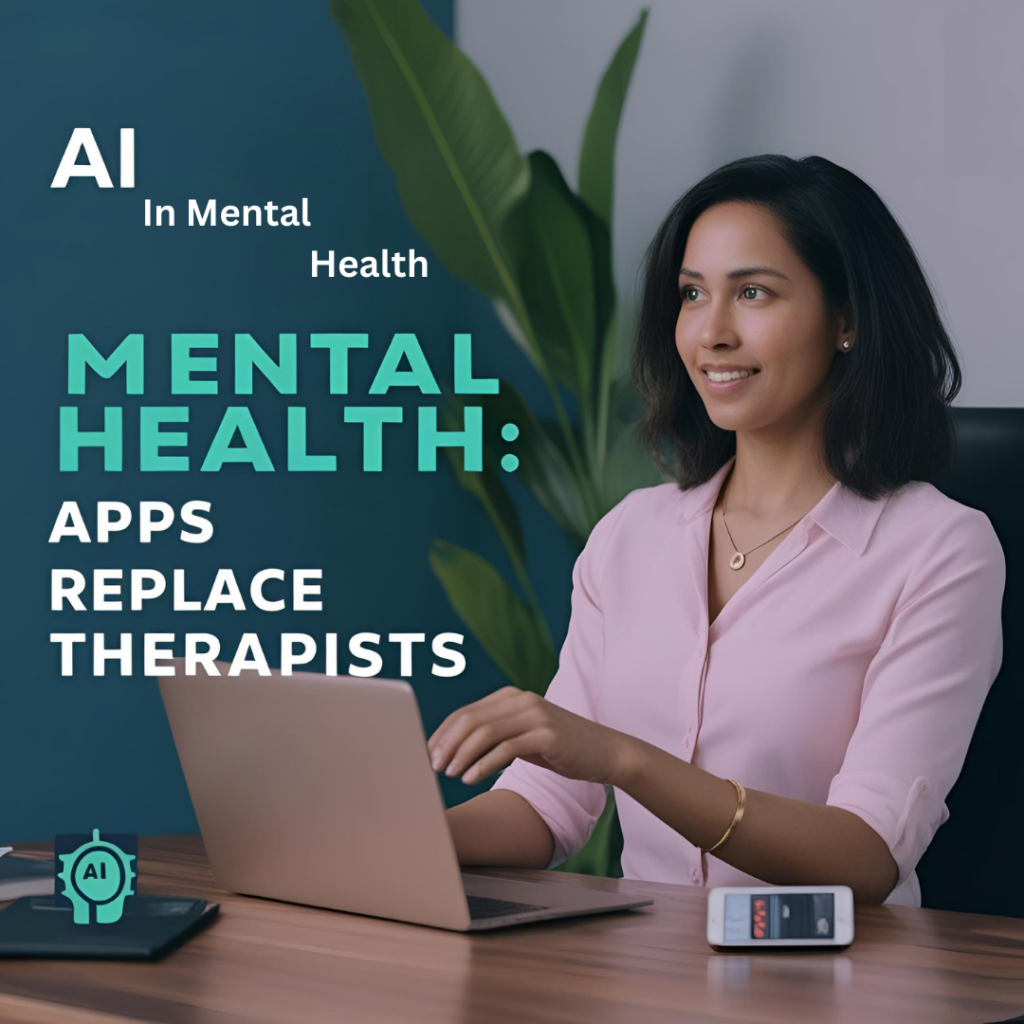AI in Mental Health: Can Apps Replace Therapists?

Artificial Intelligence (AI) is revolutionizing various industries, including healthcare and mental health services. With the rise of mental health apps and AI-driven chatbots, many wonder if these technologies can replace human therapists. While AI offers promising solutions, can it truly provide the empathy, depth, and personalized care that human professionals deliver? Let’s explore the potential and limitations of AI in mental health.
The Rise of AI-Powered Mental Health Apps
AI-driven mental health applications like Woebot, Wysa, and Replika are gaining popularity. These apps use natural language processing (NLP) and machine learning (ML) to interact with users, offering cognitive behavioral therapy (CBT) techniques, mood tracking, and guided meditation. They provide:
- 24/7 Accessibility: Unlike human therapists, AI apps are available round-the-clock, offering immediate support in moments of distress.
- Affordability: Therapy can be expensive, whereas many AI-driven mental health apps are free or available at a fraction of the cost.
- Anonymity: Users who feel uncomfortable discussing their struggles with a human therapist may find comfort in AI chatbots.
The Limitations of AI in Mental Health Care
Despite their benefits, AI-driven mental health tools have significant limitations:
1. Lack of Human Empathy and Intuition
AI chatbots can recognize text patterns and respond with pre-programmed empathy, but they lack genuine human emotions and the ability to interpret non-verbal cues, such as tone, body language, and facial expressions.
2. Personalization Challenges
While AI can analyze user data and tailor responses, it cannot fully understand the nuances of an individual’s experiences, upbringing, and unique mental health challenges the way a trained therapist can.
3. Risk of Misdiagnosis
AI lacks the clinical expertise of licensed therapists and psychiatrists. It may fail to recognize severe mental health conditions, such as bipolar disorder or schizophrenia, leading to misdiagnosis or inadequate support.
4. Ethical and Privacy Concerns
Mental health data is sensitive, and the use of AI apps raises concerns about data privacy and security. Users must ensure that their data is protected and not exploited for commercial purposes.
The Future: AI as a Complement, Not a Replacement
Rather than replacing therapists, AI can act as a supportive tool in mental health care. AI can:
- Assist therapists by analyzing patient data to provide insights.
- Offer preliminary support before individuals seek professional help.
- Provide supplementary resources for ongoing therapy.
Conclusion
While AI-driven mental health apps offer accessibility, affordability, and convenience, they cannot replace the human connection, expertise, and deep understanding provided by trained therapists. The future of mental health care lies in a hybrid approach, where AI enhances but does not replace traditional therapy.
Have you tried an AI-powered mental health app? Share your experiences in the comments below!